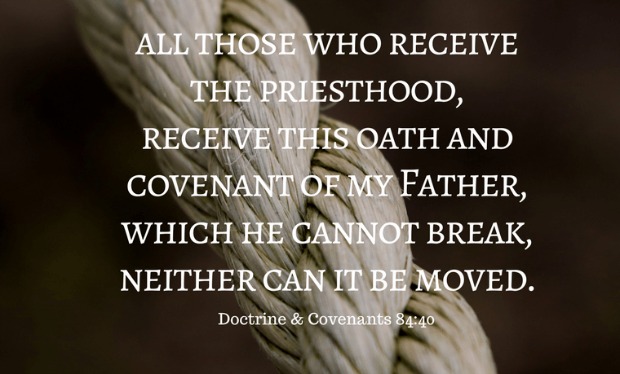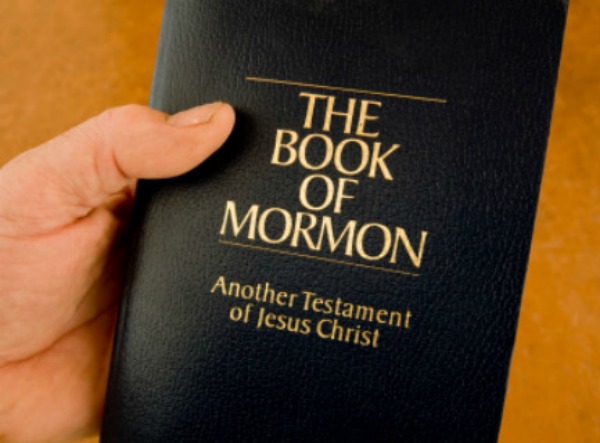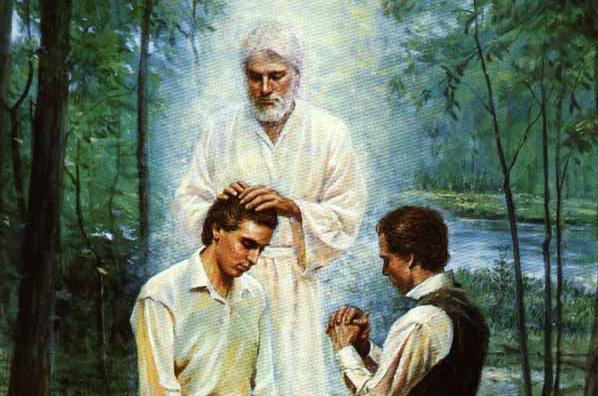Question
Dear Gramps,
Section 84 of the Doctrine & Covenants details the Oath and Covenant of the Priesthood. It is my understanding that an oath is a solemn verbal declaration. Yet I remember making no such verbal declaration when I was ordained to the Melchizedek priesthood. Could you enlighten us on this matter? Thanks,
Robert
Answer
Dear Robert,
We often speak of a covenant within the restored gospel of Jesus Christ as a “two-way promise”, but there’s some details we ought to keep in mind. Gospel Principles reminds us:
God … sets the terms of His covenants, and He reveals these terms to His prophets. If we choose to obey the terms of the covenant, we receive promised blessings. If we choose not to obey, He withholds the blessings, and in some instances a penalty also is given.
God sets the terms. Our part is either to accept the terms through the prescribed ordinance, or to turn away from it by abstaining. There is no negotiating or haggling over line items and conditions. There is no time or place to give a counter-offer. So when we enter into the covenant of baptism, we stand silently in the font and submit to God’s will. When we renew our covenants, we dine on the ritual meal in silence. To act is to assent.
Similarly, when a person is ordained to the priesthood (Aaronic or Melchizedek) he enters the associated covenant by having it conferred on him (which, again, requires nothing to be spoken, although an “amen” would solemnly affirm all that is implied in the act). The covenants related to these two priesthoods have been summarized by Elder Dale G. Renlund (the footnotes are well worth reading for more detail and study resources).
An Aaronic Priesthood holder covenants to avoid evil, help others be reconciled to God, and prepare to receive the Melchizedek Priesthood. These sacred responsibilities are fulfilled as he teaches, baptizes, strengthens Church members, and invites others to accept the gospel…. In return, God promises hope, forgiveness, the ministering of angels, and the keys of the gospel of repentance and baptism.
A Melchizedek Priesthood holder covenants to fulfill the responsibilities associated with the Aaronic Priesthood and to magnify his calling in the Melchizedek Priesthood. He does so by keeping the commandments associated with the covenant. These commandments include giving “diligent heed to the words of eternal life” by living by every word that proceeds from the mouth of God, bearing testimony of Jesus Christ and His latter-day work, not boasting of himself, and becoming the Savior’s friend, trusting Him as a friend would.
In return, God promises that a Melchizedek Priesthood holder will receive keys to understand the mysteries of God. He will become perfect so that he can stand in the presence of God. He will be able to fulfill his role in the work of salvation. Jesus Christ will prepare the way before the priesthood holder and will be with him. The Holy Ghost will be in the priesthood holder’s heart, and angels will bear him up. His body will be strengthened and renewed. He will become heir to the blessings of Abraham and, along with his wife, joint-heir with Jesus Christ to Heavenly Father’s kingdom. (The Priesthood and the Savior’s Atoning Power, October 2017)
In contrast, an oath is a solemn affirmation or declaration, where a sort of earnest is invoked. When Jesus walked the earth, he observed that this practice had gotten out of hand. Listen to some of the things sworn over in their oaths: “by heaven… by the earth… by Jerusalem … by [the] head [or hair].” The greater the object sworn upon, the more seriously you could take that oath. A good example of this oath and covenant process, and how seriously it was taken in the ancient world, is seen in the exchange between Captain Moroni and a subdued Zarahemnah. Here the oath is pronounced by Moroni while setting the terms (“I command you”) for Zarahemnah and for himself.
And now, Zerahemnah, I command you, in the name of that all-powerful God, who has strengthened our arms that we have gained power over you, [before stating the terms, Moroni gives a lengthy oath to let him know he means business] (1) by our faith, (2) by our religion, and (3) by our rites of worship, and (4) by our church, and (5) by the sacred support which we owe to our wives and our children, (6) by that liberty which binds us to our lands and our country; yea, and also (7) by the maintenance of the sacred word of God, to which we owe all our happiness; and (8) by all that is most dear unto us— Yea, and this is not all; I command you (9) by all the desires which ye have for life,
[now comes the terms for what Zarahemnah promises] That ye deliver up your weapons of war unto us, and
[now comes the terms for what Moroni promises] we will seek not your blood, but we will spare your lives,
[Zarahemnah again – it’s chiastic] if ye will go your way and come not again to war against us.
[this particular covenant comes with a penalty for violating the conditions] And now, if ye do not this, behold, ye are in our hands, and I will command my men that they shall fall upon you, and inflict the wounds of death in your bodies, that ye may become extinct. (Alma 44:5-7).
Moroni swears by 8 things, and adds a 9th for emphasis. When Zarahemnah refuses the terms of the covenant, Moroni swears another oath of the greatest magnitude. “As the Lord liveth,” he affirms, “ye shall not depart except … ye shall submit to the conditions which I have proposed.” Throughout the Old Testament and the Book of Mormon, the life of the Lord was the greatest object to swear by. Similarly, in the past when God made an oath, “he sware by himself” “because he could swear by no greater”.
Returning to the priesthood, Doctrine and Covenants 84 is often referred to as the Oath and Covenant of the Priesthood because it explains a portion of blessings and conditions “according to the oath and covenant which belongeth to the priesthood. Therefore, all those who receive the priesthood, receive this oath and covenant of my Father, which he cannot break, neither can it be moved.” As I noted above, the priesthood is conferred with an optional “amen” on the part of the recipient. Where, then is the oath? Elder Renlund, in the talk cited earlier explains:
To each man who receives the Melchizedek Priesthood, God affirms His covenant promises with an oath. This oath pertains only to the Melchizedek Priesthood, and it is God who swears the oath, not the priesthood holder. Because this unique situation involves His divine power and authority, God uses an oath, employing the most forceful language He can, to assure us of the binding and irreversible nature of His promises.
This is a faithful synopsis of scripture. In Hebrews, Paul spends some time belaboring the point that the Law, priesthood, and ordinances under Moses are inferior to the gospel, priesthood, and ordinances under Jesus. He teaches that Levitical high “priests were made without an oath; but this [high priest, Jesus, was made] with an oath by him that said unto him [in Psalm 110:4], The Lord sware and will not repent, Thou art a priest for ever after the order of Melchisedec.”
You don’t remember swearing an oath, because you didn’t swear an oath. God Himself swore an oath to impress on those entering into the covenant how seriously He takes those blessings and terms. Elder McConkie spoke about God’s oaths, and emphasized the oath associated with the Melchizedek Priesthood
These are the most glorious promises given to men. There neither is nor can be anything as wondrous and great. And so the Lord uses the most powerful and emphatic language known to the human tongue to show their importance and immutability. That is to say, the Lord swears with an oath in his own name, because he can swear by no greater, that everyone who keeps the covenant made in connection with the Melchizedek Priesthood shall inherit, receive, and possess all things in his everlasting kingdom, and shall be a joint-heir with that Lord who is his Only Begotten. (The Doctrine of the Priesthood, April 1982).
Gramps







